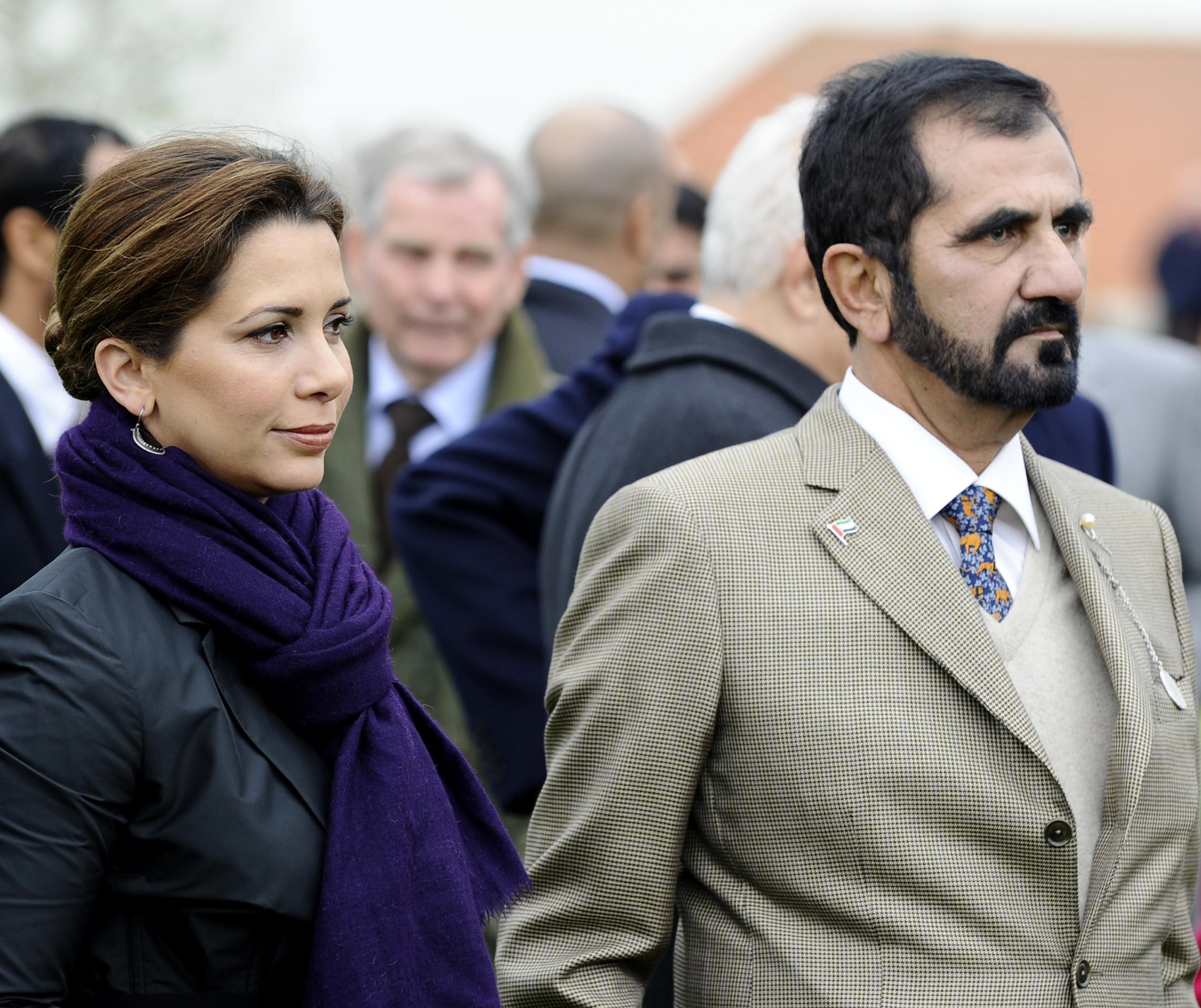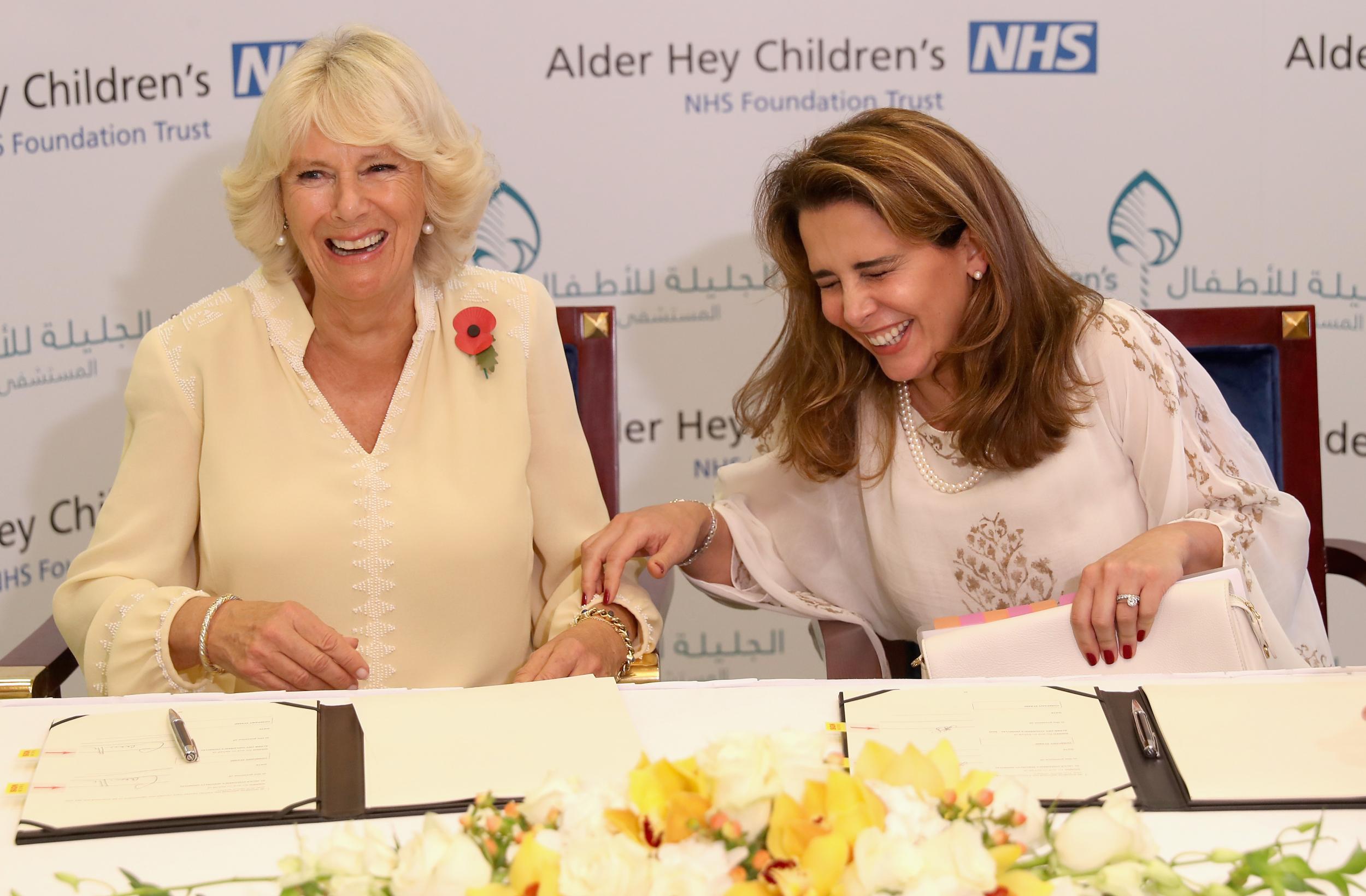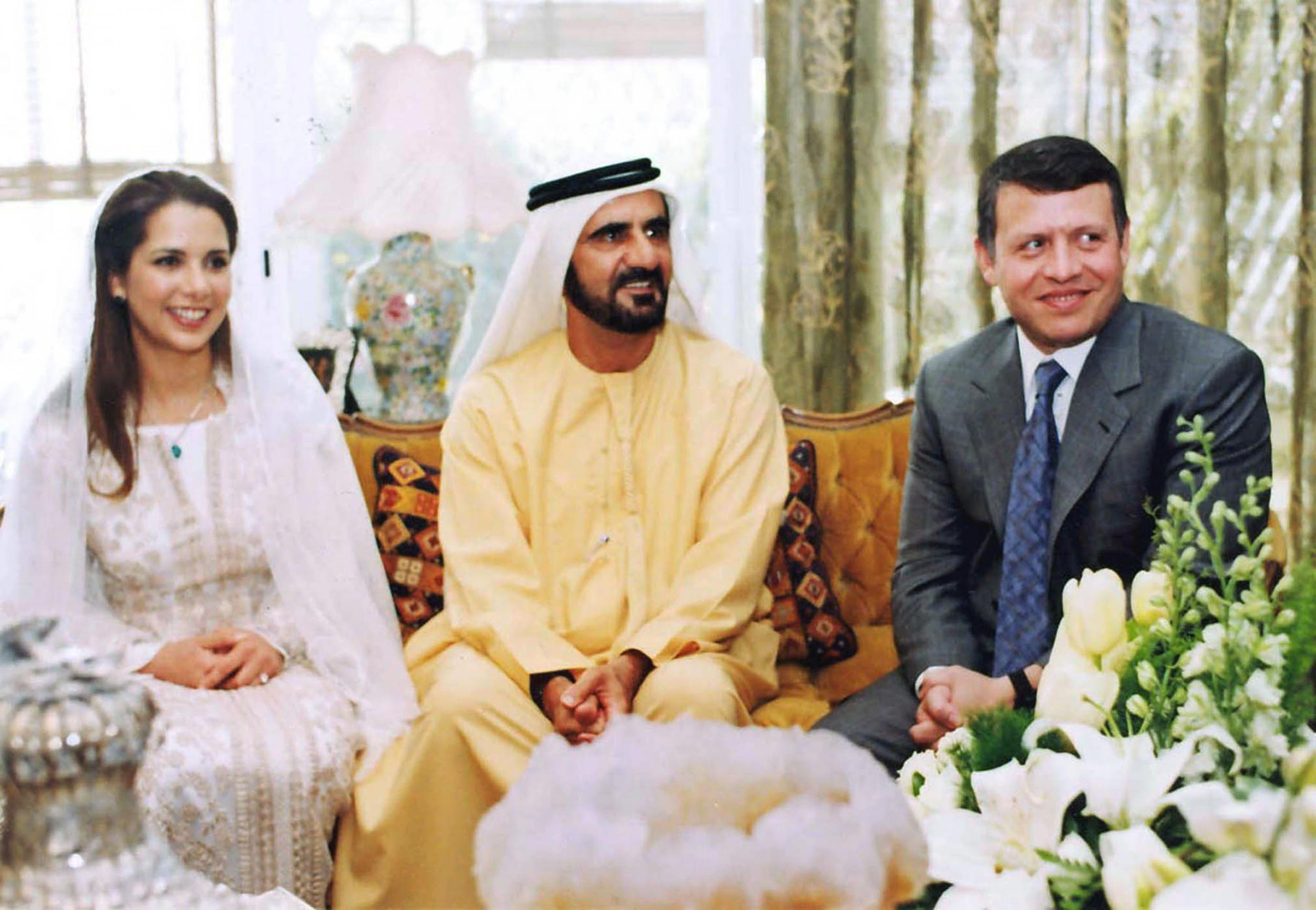The power struggle surrounding the UAE’s latest runaway princess
Details in this intriguing story will likely be spilled at a court case this month in London, writes Kim Sengupta


Legal battle lines have been drawn up for a court case in London at the end of this month in which unprecedented revelations are expected to be made about one of the most powerful monarchies in the Middle East. The case, involving the ruler of Dubai and his sixth wife, comes with some extraordinary chapters of intrigue, claims of violence, and accusations of abuse – all of which have received widespread international publicity.
Last year, Haya Bint al-Hussein, married to Sheikh Mohammed Rashid al-Maktoum, and her friend Mary Robinson, formerly president of Ireland and the UN high commissioner for human rights, appeared together in photographs that led to immediate controversy and criticism. They were pictured alongside Latifa, a stepdaughter of Princess Haya who disappeared from the United Arab Emirates in February 2018 but was then arrested on a yacht, the Nostromo, by the Indian coastguard, and returned to Dubai.
Princess Latifa was seized along with Herve Jaubert, a French intelligence officer and a Finnish friend, Tiina Jauhiainen, who had helped plan her escape for months. Five other Navy vessels – three Indian and two Emirati – were reported to have been involved in the operation. The governments of both countries provided little information as to what had taken place.
Before fleeing, Princess Latifa had recorded a video saying that were it to be released, “either I am dead, or in a very, very bad situation”, and accused her father of severely mistreating her and her sister, Shamsa. These allegations have been strongly denied. Princess Shamsa had fled from her father’s estate, near Chobham in Surrey, in 2000. She was seen in Cambridge in August that year before disappearing. She later turned up in Dubai after, allegedly, being forced back home.

In the photographs with Princess Haya and Ms Robinson, 33-year-old Princess Latifa was unsmiling, looking listless. Ms Robinson subsequently gave an interview to BBC Radio 4 in which she described Latifa as a “troubled young woman” who regretted making the video claiming abuse.
Human rights groups accused the former Irish president of repeating the Emirati royal family’s propaganda; she responded she was merely giving her views after being invited to the meeting by Princess Haya, her friend. Seven months on, and Princess Haya has herself fled the UAE. She is now living in London at a house near Kensington Palace, which she bought from Lakshmi Mittal, the billionaire Indian born steel magnate, for £85m two years ago. She has asked for police protection and has also engaged a private security firm that has senior former Scotland Yard officers in its hierarchy.
We can see the power the UAE has in Great Britain, it forced the government to carry out an investigation into the Muslim Brotherhood, who the Emiratis hate. What happens if there is an asylum application and it’s rejected?
Princess Haya, educated at Badminton School then St Hilda’s College at Oxford, knows members of the British royal family, including the Queen and Prince Charles. She is said to have asked for political asylum and there is also talk of legal proceedings for divorce from Sheikh Mohammed and custody of the couples’ two children, a seven-year-old daughter and an 11-year-old son. The sheikh has 21 other children with his other wives. The princess is being represented by Fiona Shackleton QC who acted for Prince Charles in his divorce from Princess Diana, as well as for Prince Andrew, Duke of York and Sir Paul McCartney.
Radha Stirling, the founder of the pressure group Detained in Dubai, who had been in contact with Princess Latifa during her abortive escape attempt and had raised the issue of the disappearance of Princess Shamsa with British police, has offered help to Princess Haya’s legal team.
Sheikh Mohammed is being represented by Helen Ward QC who has acted for Andrew Lloyd Webber, Paloma Picasso, Guy Ritchie, Bernie Ecclestone and Princess Diana’s stepmother Countess Raine Spencer. There have been a number of reasons offered for Princess Haya’s departure from Dubai. One is that she apparently found out what really happened to Latifa and Shamsa and felt she could no longer continue to be a member of the royal family and live safely in Dubai.
Another claim holds that Princess Haya incurred Sheikh Mohammed’s anger by becoming too close to a bodyguard, a former British Army officer. One former British soldier, involved in the private security sector in the Gulf, says: “There were definite rumours of a Barry Mannakee kind around for a while, I don’t know if it’s true or not – the guy involved is back in the UK. You won’t see him in the Gulf any time soon, I suspect.”
Mannakee was a police personal protection officer for Princess Diana and allegedly had an affair with her. He was moved from his post and later died in a motorcycle crash. No evidence has been produced to show that Princess Haya was intimate with the bodyguard, who works for a UAE-owned security company. Last month, Sheikh Mohammed posted a poem on his website, written in a classical Arabic style known as hija or invective. On the theme of perfidy and betrayal, it said: “The era of your lies has ended ... You no longer have any place with me ... I do not care if you live or die.”

An entire section of Sheikh Mohammed’s website is dedicated to these poems. They are inspired, it says, from “personal experience, event or situation”. The sheikh stresses: “I have never written any verse without it being a reality of my life.”
Emirati officials complain that opponents of the royal family and the government are seeking to use personal issues for agendas of their own. Their explanation of the Princess Latifa case, for instance, is that it is an attempt at blackmail. They point to an interview given by Helene Jaubert, the ex-wife of Herve Jaubert, on The Daily Beast website in which she claimed: “The whole plan was for Herve to help her escape and once he got her out, the daughter was going to get to the dad and say I want $3m or else I’ll tell all to the media. It was a con. It’s a corrupt scheme gone haywire.”

The allegation is strongly denied by Princess Latifa’s friends, and by Herve Jaubert. The Emiratis also point to links between Detained in Dubai and people such as Shahid King Bolsen, an American convert to Islam who served seven years in jail for manslaughter in Dubai, and who The New York Times once described as “an internet provocateur” for Islamist causes. There are also claims from Emirati sources that regional rivals Qatar and Iran are behind stories of royal feuds.
The whole plan was for Herve to help her escape and once he got her out the daughter was going to get to the dad and say I want $3m or else I’ll tell all to the media. It was a con. It’s a corrupt scheme gone haywire
No evidence has been provided to back this charge, but there are possible political ramifications to what is unfolding with Princess Haya. There have been reports that the UAE asked the British government to help return Princess Haya home. This is denied by authorities in Dubai and Abu Dhabi.
But some of Princess Haya’s friends fear that the UK may give in to pressure. The wife of an Emirati businessman, who did not want her name disclosed, said that: “We can see the power [the UAE] has in Great Britain, it forced the government to carry out an investigation into the Muslim Brotherhood, who the Emiratis hate. What happens if there is an asylum application and it’s rejected? What if there is Saudi pressure as well – the two [ruling] families are very close; who knows what can happen.”
However, it seems highly improbable that someone with Princess Haya’s influential connections in this country, and resources, not least formidable legal ones, would allow her to be simply deported back to the Emirates. There are other possibilities of diplomatic and political friction. Princess Haya is the daughter of the late ruler of Jordan, King Hussein; the current ruler, King Abdullah, is her half-brother.

Jordan’s finances are in difficult straits. The country is dependent on the Emirates as well as Saudi Arabia, and relies on the millions of dollars in remittances sent home by tens of thousands of Jordanians working in the Gulf.
The peace plan for Israel and the Palestinians, the economic part of which was recently presented by Jared Kushner in Bahrain, also does little favour to Jordan, which hosts a very large number of Palestinian refugees. Amman has consistently pushed for a two-state solution, the prospects for which are pushed even further back by Donald Trump’s son-in-law’s proposals. Jordan would need Emirati and Saudi help to cope with problems this is likely to pose.
At the same time, Princess Haya, an Olympic equestrian for Jordan, is hugely popular in the country and any perception of mistreatment of her would lead to resentment, which may in turn affect Jordanians working in the Gulf. The story of the princess and her departure from the Emirati royal family will have widespread repercussions, well beyond the confines of the High Court in London.
Join our commenting forum
Join thought-provoking conversations, follow other Independent readers and see their replies
Comments
Bookmark popover
Removed from bookmarks